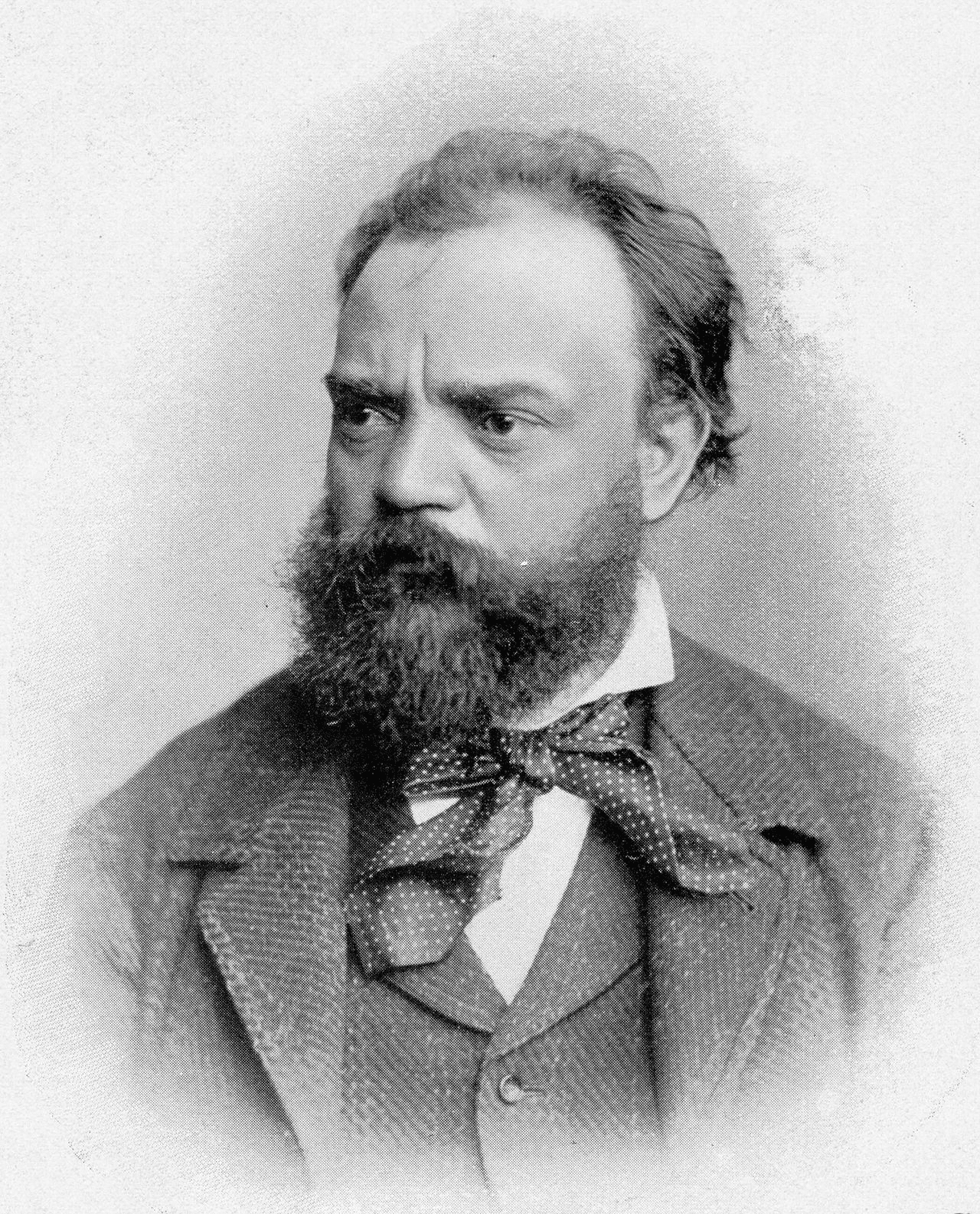1.8 – Antonín Dvořák and Jaromír Erben
Antonín Leopold Dvořák (8 September 1841 – 1 May 1904) was of just about the same generation as Jirásek, a Czech composer who also had an interest in folk myths and song. After Bedřich Smetana, he was the second Czech composer to achieve worldwide recognition. Following Smetana's nationalist example, Dvořák frequently employed aspects, specifically rhythms, of the folk music of Moravia and his native Bohemia.
In 1891 Dvořák was appointed as a professor at the Prague Conservatory, and a year later, in 1892, Dvořák moved to the United States and became the director of the National Conservatory of Music of America in New York City (where he remained with his family until 1985). While in the United States, Dvořák wrote his two most successful orchestral works. The Symphony From the New World spread his reputation worldwide. (The piece has become so emblematic of American life that the New York Philharmonic chose to perform it when they played in North Korea in 2008.) Dvořák also wrote his American String Quartet while in the U.S., his most appreciated piece of chamber music.
In 1896 once back in Prague, Dvořák wrote the symphonic poem The Water Sprite (Vodník), adapted from a poem of the same name in Karel Jaromír Erben’s celebrated collection, Kytice. You can listen to the opus on YouTube here: https://www.youtube.com/watch?v=Tevnw2zRDk0
Erben, a poet, was another Czech figure (of the mid-19th century) who based his works on folkloric themes. Also take a look at the trailer to:
- a film adaptation of Kytice from 2000
- a comics version of the poem Komiksová kytice (Transmedialist 2016)
First two paragraphs adapted from Wikipedia: https://en.wikipedia.org/wiki/Antonín_Dvořák)
CC-BY-SA
Images used in this document come from these sources.
